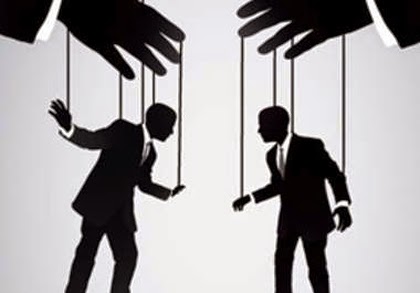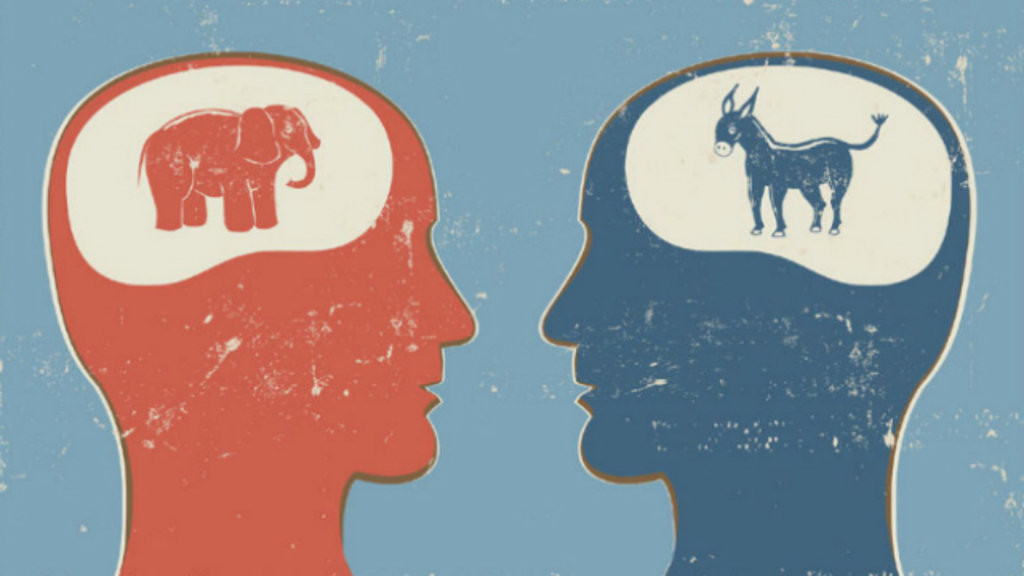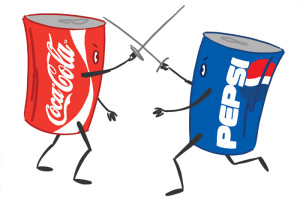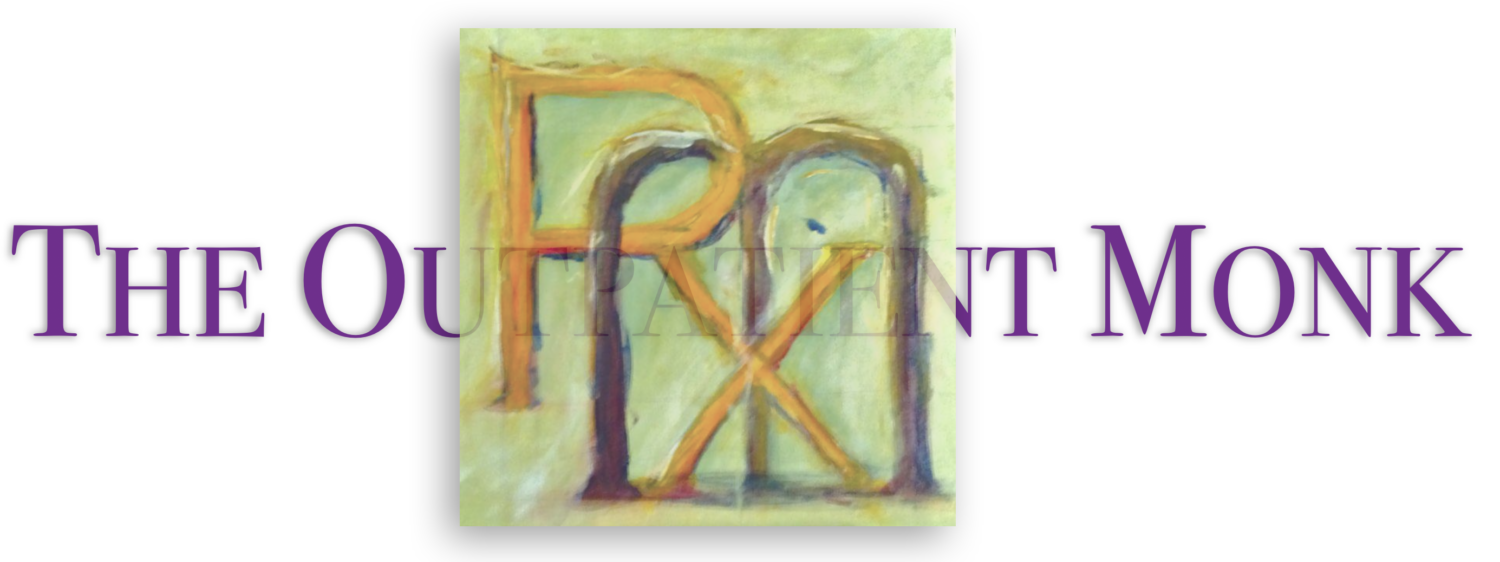Last updated on March 22, 2025
 FaceBook is admittedly a strange land. Is it not? And it has been clear for quite some while that we don’t really know how to dwell there as our best human selves. Even so, in the past few weeks I have noticed something in myself and in others that has lead me to an admittedly bizarre but entirely sincere conclusion: I may be in need of an exorcism, and it is very probable you might need one too.
FaceBook is admittedly a strange land. Is it not? And it has been clear for quite some while that we don’t really know how to dwell there as our best human selves. Even so, in the past few weeks I have noticed something in myself and in others that has lead me to an admittedly bizarre but entirely sincere conclusion: I may be in need of an exorcism, and it is very probable you might need one too.
Politics, in general, are notoriously contentious. It is one of only a very small handful of topics that we are warned is bad manners to bring up as a guest at a dinner party. However good intentioned we may well be, if we bring up politics we are almost certainly picking a fight. So that aspect of our conversations about politics is not new. This is not the first vicious campaign ever waged. It won’t be the last or probably even the most memorable.
Nevertheless, there is something about the way we have been talking to each other lately that stands out as a little different from other elections and it has me very concerned, if for nothing else than the condition of my own soul.
Not long ago I had something happen in my feed that is actually pretty familiar, but because it caught me off guard I think I saw it through a different lens. I had posted an article released by the Southern Baptist Convention. It was about how poverty, and specifically hunger, impacts a number of other hot button issues. It was a thoughtful piece from what is usually considered a conservative source that really seemed to be trying to demonstrate the nuance and complexity of some issues and to challenge Christian’s ethics, more so than even politics.
Within minutes of posting the article, the majority of the comments had disintegrated into a Pro-Life vs Pro-Choice sound-off. Even though many of the commenters were complete strangers to me they certainly felt right at home making judgments about people’s character and intentions. The interactions quickly veered off in a direction that was logically incomprehensible to me but still somehow totally unsurprising. What I mean is that even though the conversation had to take some weird turns to get there, it ended up in a very familiar rut with really predictable results.

I noticed some commenters trying to put words in other people’s mouths by first by beginning their comments with “So what you are really saying is….” and then by inserting a straw argument that wasn’t actually what the other person was saying at all. Some folks pigeon holed each other, saying really presumptive things like “You’re obviously just one of those liberal/conservatives who thinks that…” and then grossly mis characterized that person.
What started as what I thought was a careful and nuanced article resulted in crass and uncharitable culture war blow-out. This wasn’t true of every comment made. Some contributions where quite astute, but it is where the conversation as a whole was being driven. It was loaded with assumptions, sound-bytes and slogans and that is when it became, quite frankly, entirely unhelpful. Nothing to see here folks, just people armed with megaphones and exclamation points.
It is entirely probable that you have seen this happen or had it happen on our own feed. But because it caught me off guard, my attention was drawn as much to the tactics people were using instead of the predictable and off-putting actual bickering. I watched the conversation shift drastically from the complex issue of poverty and single parenting to the heated debate abo ut abortion. “So what you are saying is that if your poor it is ok to have an abortion?” Well, the article which, again, was published by the Southern Baptist Convention, said no such thing. It was ludicrous to think it would. “You’re obvious one of those conservatives that is pro-birth but then doesn’t care at all about what happens afterwards,” replied another stranger who I presume to be a liberal, without any real actual evidence to the fact. How quickly the conversation shifted from poignant nuance to heated controversy, from careful analysis to painting with broad strokes, from listening to presumptively stereotyping.
ut abortion. “So what you are saying is that if your poor it is ok to have an abortion?” Well, the article which, again, was published by the Southern Baptist Convention, said no such thing. It was ludicrous to think it would. “You’re obvious one of those conservatives that is pro-birth but then doesn’t care at all about what happens afterwards,” replied another stranger who I presume to be a liberal, without any real actual evidence to the fact. How quickly the conversation shifted from poignant nuance to heated controversy, from careful analysis to painting with broad strokes, from listening to presumptively stereotyping.
It felt like some force was intentionally pushing the conversation that direction, like something or somebody wanted the conversation to be more predictable and stereotypical. It didn’t seem like any one person was causing this to happen but it did feel like something was purposefully steering the conversation away from thoughtful reflection toward prepackaged rhetoric.
In the end, the Culture Wars took over

That story is a little easier to tell because I didn’t know the gross offenders and probably deleted most of those comments.
This problem is not just with small handfuls of strangers comment-bombing my posts. It is actually quite personal. As I began to ask myself what role I play in this, I realized have participated in exchanges with people in which my contributions just doesn’t sit right with me. I have had to go back and seriously evaluate my participation. What I found is that at times I was utterly surprised how much what I had posted as a comment just didn’t sound like me at all. And while I work hard to never be rude or insulting, I had to admit that some of the things I said, at best, didn’t reflect the quality of relationship I had with the person with whom I was chatting. It was definitely me who wrote those things and I am responsible for that. There is no passing the buck. At the same time I can’t help bust ask, what on earth has gotten in to me? What made it so easy to switch in to auto and let the language of the culture wars speak for me?
What about others? Is this the same for other people? I noticed that a lot of the comments from friends that felt particularly prickly to me (if not outright hurtful) had the same quality. At times, even good friends didn’t sound like themselves. This was especially the case when they were echoing the rhetoric of a candidate or a party. In those moments it seemed clearly like someone else’s voice was taking over. I kept thinking, “This isn’t your voice. This has never been how you’ve talked to me, or anyone else I know, before now. What has gotten in to us?”
Even as I have tried to be more mindful about what I am posting, I’ve noticed that sometimes it is not just that I seem to be channeling someone else’s voice, but I am actually inclined to blatantly just regurgitate a meme, a catch phrase or a sound-byte that I picked up somewhere in my echo chamber. Similarly, I have on more than one occasion read a friend’s comment and thought, “Man, that reads more like a headline right out of Fox News/Huffington Post/Breitbart than anything you would ever say.” It is as if there was a certain gear we could easily shift in to whenever we went anywhere near politics, and it was perhaps even expected of us. It tends to make conversations that are not very engaging, but it does provide plenty of opportunities for righteous indignation and a chance to stand your ground.
So here we are, speaking in voices that are not entirely our own and regurgitating stuff into each other’s faces. If I understand one particular Hollywood movie genre and a few Biblical passages correctly, these are clear signs of demon possession.
Of course, in one sense I say that with my tongue planted firmly in my cheek. However, I am not only making a joke.
I am also listening a handful of American theologians (William Stringfellow, Marva Dawn, Walter Wink, and Ched Myers) who are modern rational thinkers in their own right. While none of them seem too interested in talking about spiritual entities as invisible winged creatures with talons and fangs, they do  write very compelling accounts of the “Powers and principalities,” of this world as spiritual entities, and what that means for our every day lives. Walter Wink considers it central to an Christian social ethic…
write very compelling accounts of the “Powers and principalities,” of this world as spiritual entities, and what that means for our every day lives. Walter Wink considers it central to an Christian social ethic…
One of the most pressing questions facing the world today is, How can we oppose evil without creating new evils and being made evil ourselves? It is my conviction that any attempt to face the problem of evil in society from a New Testament perspective must be bound up with an understanding of what the Bible calls the “Principalities and Powers.” I am also convinced that no social ethic can be constructed on New Testament grounds without recognition of the role of these Powers in sustaining and subverting human life. —Engaging the Powers, Introduction.
There is something really helpful to me right now in being able to conceive of the Culture Wars, or American politics as a “thing.” The Culture Wars are not just a critique, a description, an analysis, or a heuristic tool for thinking about contemporary American society. It is a force to be reckoned with that seems to have a kind of agenda and rules and patterns of behavior, a personality, if you will. As soon as I name it as a power, I suddenly think of it in much less neutral was than when I though of the culture wars a nothing more than a descriptive account of what’s been going in American politics. I suddenly want to distance myself from it as a Power, and certainly not speak on its behalf, or allow it to determine the nature of my relationships.
It is helpful just to name and think of these things as “powers” with personalities, But Walter Wink doesn’t want us to just think about the powers in this way a helpful tool, he sees them as a real spirituality. Again, not a winged creature, but a real entity and force within the world. He writes…
My thesis is that what people in the world of the Bible experienced and called “Principalities and Powers” was in fact real. They were discerning the actual spirituality at the center of the political, economic, and cultural institutions of their day. The spiritual aspect of the Powers is not simply a “personification” of institutional qualities that would exist whether they were personified or not. On the contrary, the spirituality of an institution exists as a real aspect of the institution even when it is not perceived as such. Institutions have an actual spiritual ethos, and we neglect this aspect of institutional life to our peril.
However you end up thinking about this, what seems at least a little evident is that there is a collective habit of thought, a repeating pattern of behavior, a force or a power, that keeps us coming back to the same stalemate conversations over and over again. It asks us to pigeon hole other people and to keep conversations within the confines of the Culture War sound-bytes. It lumps sometimes unrelated moral issues into a single political platform. It has captured our imaginations. It has tried to narrate “what is really going on” in our lives, and is asks for our faith and hope. Frankly, it keeps us from asking harder better questions about who we are and where we are headed.
 In some ways it is very similar to the Cola wars off the 80’s and 90’s. It really didn’t matter so much who came out ahead. The real winner was the entire soda industry which saw spikes in soda consumption as people laid claim to being a Pepsi person, or a Coke person. Both sold more. Even RC and generic Cola fared better. Similarly there is a sense that the Culture Wars don’t really care if you are a Democrat or a Republican. The individual candidates and their parties might care, but regardless of the winner, The campaigns have everyone putting their hope in the presidency itself. The power of this fear based competition is that it tells us where to put our hope, who to trust and who to fear. It asks us to keep buying-in even if we don’t like the options before us, it keeps are attention on the powerful elite and even though we have plenty of opportunities to begin building better communities right where we live. It has us arguing about Washington, nervous about our neighbors, and glued to our FaceBook feed and television sets, wondering if it is time to panic yet.
In some ways it is very similar to the Cola wars off the 80’s and 90’s. It really didn’t matter so much who came out ahead. The real winner was the entire soda industry which saw spikes in soda consumption as people laid claim to being a Pepsi person, or a Coke person. Both sold more. Even RC and generic Cola fared better. Similarly there is a sense that the Culture Wars don’t really care if you are a Democrat or a Republican. The individual candidates and their parties might care, but regardless of the winner, The campaigns have everyone putting their hope in the presidency itself. The power of this fear based competition is that it tells us where to put our hope, who to trust and who to fear. It asks us to keep buying-in even if we don’t like the options before us, it keeps are attention on the powerful elite and even though we have plenty of opportunities to begin building better communities right where we live. It has us arguing about Washington, nervous about our neighbors, and glued to our FaceBook feed and television sets, wondering if it is time to panic yet.
This power, this “thing,” has seized our imagination and it gives us very limited parameters through which we are allowed to see the world.
And we are buying in to this story more than ever.
You might think otherwise. Voter turnout was down. Of course many, if not the majority of Americans, have felt like voting in this election is like standing on the North Pole, no matter which direction you move, left or right, your still headed south. In one sense this attitude makes it seem like there is very little buy-in. One would think that such a mutually agreed disappointment with the mess we seemed to have gotten ourselves into might cause us to back off these Culture War tactics. But on the contrary, far more than our alignment with our own party, it is the fear of the opposition will drive us deeper into the blue or red corner from which we already came.
As it happens, the more that humans see an opposing side to be a threat, the more likely we are to tweak our convictions to more closely match the group that feels safer to us, or at least to adopt their vocabulary. And no matter how free thinking we insist we are, it is nearly impossible to not be impacted by this fear based competition because it is central to our culture. It is everywhere.
It is a power, a principality, and it demands our attention. It would be easier to try and speak 16th century English with all its colloquialisms and a precise accent every minute of every day. This is the state of the American imagination and, surprise, you’re soaking in it.
This “thing,” this power, is our culture. Its language, signs and practices are everywhere. It takes over our imagination and is driving how we see the world. And trying to see it can be like trying to get fish to think about water

I want to be perfectly clear. I am not suggesting that all we need to do is be nicer to each other and that we should all move toward the middle and hold hands. That is just moving around on the spectrum of beliefs that is all still part of these Powers. If we were to fake some sort of reconciliation without confronting real issues we would be defaulting to some very bad habits of American life, the Powers would have their way.
And I am not suggesting that we can excuse our behavior, or take a passive stance in the world because of the influence of outside forces. “The devil made me do it.” On the contrary, what I am suggesting is that we have internalized the rubrics Character of the Culture Wars, we need to, we are responsible to purge those habits of thought, or better said, to ask God to deliver us. It is time to repent.
We need more people whose imagination and character are shaped by something wildly different from the political equivalent of the Cola wars.
In that sense, it actually makes a lot of sense to say, yeah, I need some kind of an exorcism. I want God, not these Powers, to determine the shape of my life
We are in the very first days of Advent, a seasons of the Church year dedicated to repentance as we prepare to celebrate the incarnation and as we wait his return. These problems we are facing are not new, nor are the remedies. Let’s look to the practices of this season precisely meant redirect our hope toward God and shape how we live together in this world.
“I Think I Need an Exorcism” Part 2: Six Advent Practices to Set Us Free From 2016.
Related Readings:
Bumper Stickers Don’t Change Hearts, and Other Reasons the Culture Wars are Hurting Everyone.
Shouting at the Bishop: Why agreeing to disagree is not a Christian response to the culture wars.

I love this. Yes!